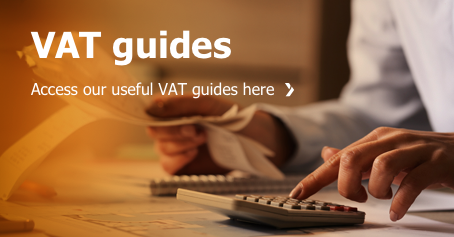Belgium VAT Guide

Luc Heylens
Global Technical Director, Kreston VDN
Luc is a Director of VAT at Kreston VDN in Belgium and a Certified Tax Adviser ITAA.
Luc is relatively new to the network, having joined Kreston VDN in January 2021, although he is very well known and respected in Belgium as a result of many years in the profession, including a Big 4 firm, in the Tax Administration in Brussels and for his profile as a result of publishing a large number of books on international and domestic VAT matters and having presented and lectured on the subject.
Luc wanted to join the leadership team given his experience in previously seeing an international network move from being a group of local specialists to a collaborative team with an international VAT and other indirect tax network. He knows what we need to do to continue to grow and wants to help us achieve our goals.
- What is the tax called?
- What type of tax is it?
- What is it due on?
- What are the VAT rates?
- What does a VAT number look like?
- Is there a registration limit?
- When does a non-established entity need to register?
- When is the place of supply Belgium?
- Any special rules?
- Does a non-established entity need a fiscal representative?
- How often do VAT returns need to be submitted?
- Are penalties imposed for late registration?
- Are penalties imposed in other circumstances?
- Can VAT incurred by foreign businesses be recovered?
- Can VAT be deducted?
- Do I need to issue an invoice?
What is the tax called?
VAT Value Added Tax (TVA (taxe sur la valeur ajoutée) – BTW (belasting over de toegevoegde waarde)
What type of tax is it?
Consumption based tax on consumers, on business transactions and imports
What is it due on?
Taxable turnover – VAT is added to the value of supplies of goods and services where the ‘place of supply’ is Belgium
What are the VAT rates?
Taxable:
21% – default (standard) rate
12% – reduced rate
6% – zero rate
Exempt:
0% – Exemptions for specific services/goods
12 % – reduced rate e.g.
- Some foodstuffs;
- certain agricultural supplies;
- some social housing;
- certain energy products e.g., coal, lignite, coke;
- some pesticides and fertilizers;
- certain tyres and inner tubes for agricultural use
6% – reduced rate e.g.
- Most foodstuffs but not catering
- entrance to cultural events and amusement parks
- Books
- Hotel accommodation
- Passenger transport
- some social housing;
- certain repair and renovation of private dwellings;
0% – zero rate e.g.
- Some daily and weekly newspapers;
- certain recycled materials and by-products;
- intra-community and international transport (excluding road, rail and inland waterways)
Exempt from VAT e.g.
- Finance
- Insurance
- Real estate (subject to an Option to Tax for commercial properties and sometimes bare land supplies)
- Health/welfare
- Education by eligible bodies
What does a VAT number look like?
BE 123.456.789
Is there a registration limit?
For BE established businesses – No, but if taxable supplies are below € 25,000 (option for no registration);
For non-BE established businesses – NIL
When does a non-established entity need to register?
If it imports into or trades goods in BE, if IC acquisitions of goods into BE are done, or if the place of supply of goods and services is deemed to be BE
When is the place of supply Belgium?
A supply that takes place in BE.
Also, special rules for services, no matter where the supplier belongs, such as:
- Land and property related
- Digital, telecommunications and broadcasting
- Services, including admissions, linked to physical performance, including artistic, cultural, educational, sporting, entertainment, exhibition and conferences/meetings
- Restaurant and catering
- Hire of means of transport
- Passenger and freight transport
Any special rules?
- Where goods with a consignment value of under €150 are located outside EU at the point of sale to a consumer, a VAT registration is required and BE VAT on the sale must be declared when imported in BE. That is unless the goods are sold via a marketplace or to a VAT registered business in which case the marketplace (or business customer) is responsible for the declaration of VAT.
- Rules of ‘use and enjoyment’ : for certain transport services and ancillary services;
Does a non-established entity need a fiscal representative?
Fiscal representation is not required (but is allowed) in BE and a pure agent can, if required, be appointed to file returns for a foreign business established in the EU. However, foreign businesses established outside the EU must appoint a fiscal representative in BE.
How often do VAT returns need to be submitted?
Normally quarterly – can be monthly
Are penalties imposed for late registration?
Yes – up to 3 years – the unpaid tax is due plus a % penalty, from 0% to 200% depending on how the error arose; if it has been brought to BE Tax Authorities attention voluntarily, these penalties will be cancelled.
Are penalties imposed in other circumstances?
Yes – penalties are charged for:
• VAT return errors (up to 3 or 4 years old and between 0% and 200% of tax due depending on circumstances) and an interest for late payment;
Can VAT incurred by foreign businesses be recovered?
Where a non-BE established or non-BE VAT registered entity established in the EU incurs VAT in BE whilst on business, such as in attending a conference, provided there is no registration requirement in BE, Tax Authorities will refund the VAT incurred, subject to precise rules and the (annual or quarterly) time limits for submission of claims.
Non-EU Businesses : if BE and other country concerned have reciprocal refund arrangements, refund can be claimed
Can VAT be deducted?
VAT incurred on expenditure can be reclaimed where it is used in connection with ‘taxable’ sales, being at the standard rate of 21%, the reduced rate of 12% or 6 % or the zero-rate of 0%. Also, for certain exempted supplies, such as exports and IC supplies, VAT incurred may be deducted; VAT on expenditure used in connection with exempt supplies (see VAT rates) cannot usually be reclaimed.
Do I need to issue an invoice?
Invoices must be raised except when supplying private persons. There are specific requirements for what is included on VAT invoices. Invoices may be raised in foreign currency, but the VAT amount must be quoted in EUR.

